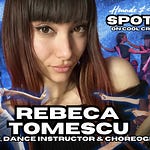Overview
The meeting featured an in-depth conversation with Ramsey Campbell, a distinguished horror writer known for his contributions to the Cthulhu Mythos, his own horror creations and much more. The discussion spanned his creative journey, inspirations, challenges, relation to horror and mental health, his appreciation of humour (notably the Three Stooges), and his current and future projects.
If you want the full transcript, here it is!
If you just want more details on specific areas we covered… here they are:
Early Influences and Reading Background
Ramsey shared his passion for reading horror and supernatural fiction from a very young age, starting with authors such as M.R. James, Edith Wharton, E.F. Benson, and Le Fanu.
He noted his early fascination with darker and bleaker fairy tales like Hans Christian Andersen’s The Little Mermaid.
Emphasized that horror was often wrapped in the genre of ghost stories or supernatural tales during the 1950s.
He described how he started writing as a child, initially in science fiction and then evolving into horror, learning from models such as Lovecraft.
Entry into Lovecraftian Horror
At age 14, Ramsey discovered Lovecraft’s work and was profoundly influenced by it.
He began writing stories set in Lovecraftian settings like Arkham, despite never having visited America.
He sent his early stories to August Derleth of Arkham House, receiving valuable editorial feedback which shaped his writing style.
His first professional publication appeared in the anthology Dark Mind, Dark Heart (1962).
Discussed the importance of a supportive mentor and how editorial advice helped his growth.
Creative Process and Style
After his early Lovecraftian success, discovered Nabokov’s Lolita at age 17, which enriched his understanding of language, comedy, and complex storytelling.
Ramsey blends diverse influences, including Nabokov, Lovecraft, Graham Greene, and M.R. James, into his unique style.
Titles like Cold Print reflect autobiographical elements and personal experiences.
Writes fiction longhand in exercise books, revising carefully before typing and rewriting on the computer.
Supports the idea of separating the creative writing stage from the editing stage.
Horror and Mental Health
Shared personal experiences of growing up with a mother who had mental health issues.
Explained how this background influenced his frequent exploration of mental collapse and distorted perceptions in his stories.
Reflected on the familiarity between horror themes and mental health struggles and how art aids grappling with such realities.
Humour and Appreciation of The Three Stooges
Although a horror author, Ramsey expressed a deep appreciation for humour, especially slapstick comedy like The Three Stooges.
Detailed his journey from initial confusion over their style to eventual admiration and laughter.
Discussed the recurring theme of chaos and misrule in the Stooges’ work and their role as agents of humour and disorder.
Highlighted the importance of sound effects and timing in comedy, drawing parallels between comedy and effective horror writing.
Also referenced connections between the Stooges and classic horror cinema including The Shining .
Challenges and Successes
Ramsey’s path to full-time writing was gradual and financially supported by his wife initially.
Early novels had mixed success; some received poor reviews, while others became influential cult favourites.
Emphasized persistence and passion as key to sustaining a long creative career.
Acknowledged struggles but highlighted the importance of continual work and improvement.
Current and Upcoming Projects
Discussed his ongoing work on new novels, including:
An Echo of Children (releasing September) — cantered on child exorcism and its dangers, inspired by real-world issues.
Ancestral (planned for next year) — a story about generational occult conflict impacting the present.
Mentioned upcoming appearances and talks at virtual and in-person conventions including the British Fantasy Society and World Fantasy Convention.
Views on Creativity and AI
Expressed scepticism about AI replacing human creativity in novel writing.
Emphasized the importance of human emotional and creative input in art.
Differentiates between creative writing (by hand) and nonfiction (typed).
Final Reflections
Highlighted the communal and evolving nature of creative works, especially mythos and shared fictional universes.
Advocated for mentorship and sharing knowledge among artists.
Expressed willingness for future conversations.
Additional Notes
Several references to rare and lost media were made, including rediscovered Three Stooges films.
The conversation covered various intertextual connections and cultural references across film, literature, and comics.
The interviewer and Ramsey discussed the importance of authenticity, creative risk-taking, and collaboration within the artistic community.
If you haven’t read a Ramsey Campbell book, no need to put that off any more! Click here and browse!
We hope you enjoyed listening to Ramsey!
We look forward to your comments and thoughts!













Share this post